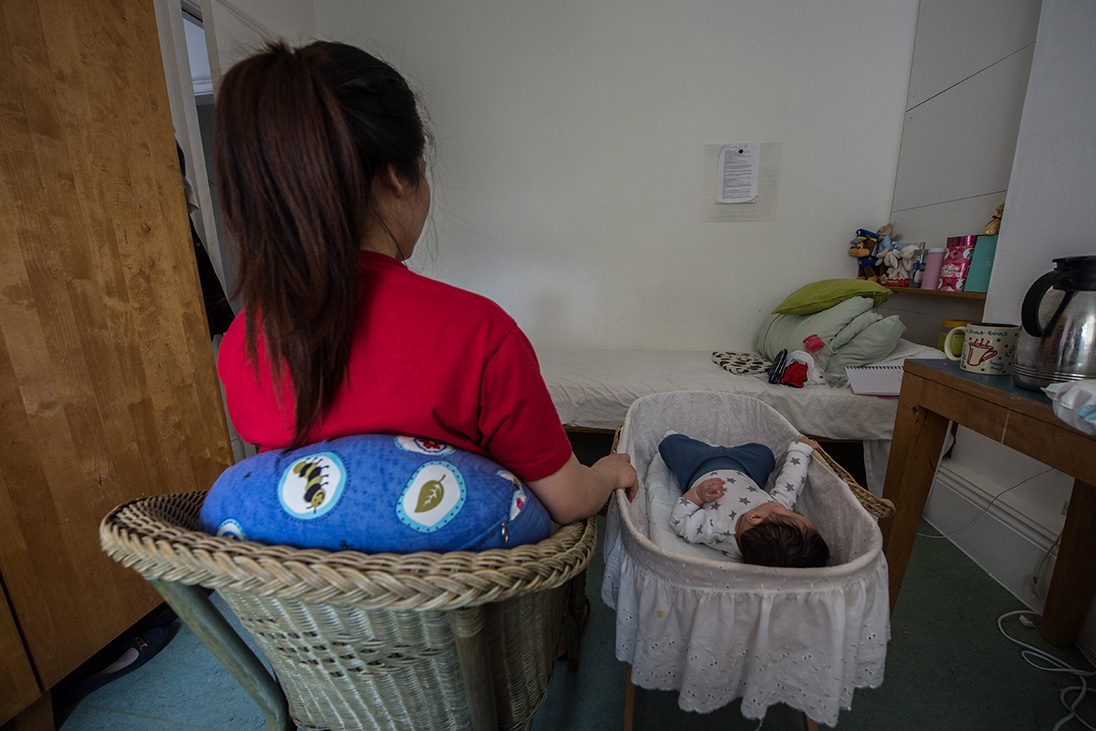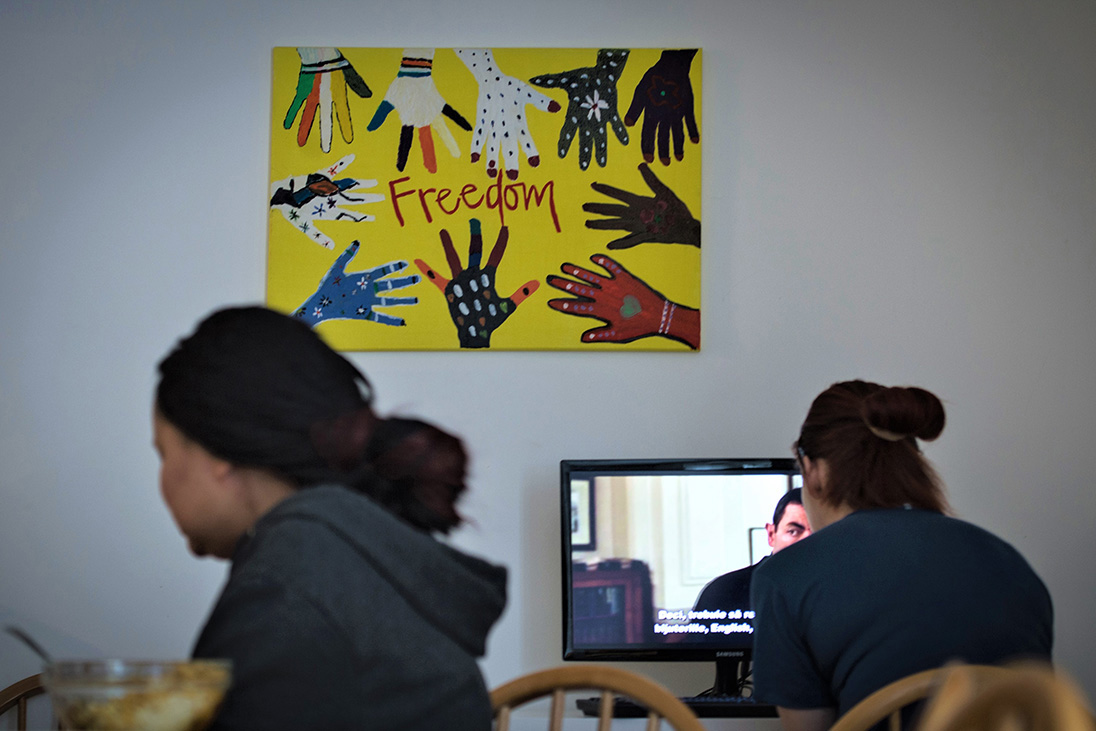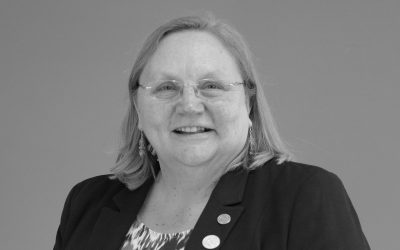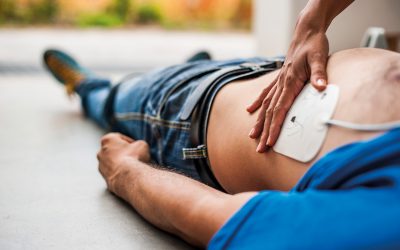Walking down a quiet, leafy street in London, you wouldn’t cast a second glance at the ordinary-looking, three-storey town house.
Outside, life goes on as normal – children are playing in the park, a young couple are laden with bags of shopping and the postman is doing his rounds.
Life goes on as normal. But for the occupants of Caritas Bakhita House, life is anything but. For the dozen women living here, their lives have been turned upside down as victims of modern slavery. This is their sanctuary, this is their safe-house.
“The point of Bakhita House is to give each guest who arrives here a better life in the future, and to help them to develop that,” explained service manager, Karen Anstiss.
“They come through the door, often very broken, very traumatised and with no hope. We put a care package around them, through our team and the volunteers.
“We help them to find a way that they can move on and have a much better life.
“To find an independence that they have never had before.
“Most of the women who come to us have never had control of what they wear, or what they do on a daily basis; things that you and I accept as normal.
“You and I, if we are hungry, might go to a supermarket and get a sandwich or buy ourselves a coffee. They don’t even make those simple decisions.
“So, it is about caring for a person, and giving them back the strength to become their own person, to make their own decisions, to step away from being controlled, to find that life that a lot of us take for granted.”
They come through the door, often very broken, very traumatised and with no hope.”
The project is named after St Josephine Bakhita, the patron saint of victims of human trafficking and modern slavery.
Bakhita House was set up by the Catholic Church, opening its doors in June 2015. It has strong links with Rotary and the Rotarian Action Group Against Slavery.
Since 2015, it has hosted 100 women from 35 countries, aged between 17 and 68, and provided a home for six newborn babies – all conceived through rape.
Referrals will sometimes come from the police, but also from other agencies like the British Red Cross, social services, the National Health Service, the Helen Bamber Foundation, other charities and from safe houses under the Government’s National Referral Mechanism (NRM).
The NRM identifies victims of human trafficking or modern slavery, and ensures they receive appropriate support.


Bakhita House gives women an independence they may never have experienced before.
According to Karen Anstiss, who was a policewoman for 31 years, with her last posting working with the Metropolitan Police’s kidnapping and human trafficking team, the women come from a multitude of backgrounds.
She said: “Except for organ donation, we have had every type of trafficking – sexual exploitation and domestic slavery, crime and benefit fraud, major crime, sham marriages, everything across the scale.
“Some have absolutely no schooling whatsoever so they can only speak their own language, to a woman who speaks four languages, who was at university doing banking and finance when she was trafficked.
“Every single one of them has had a different level of needs in some way.”
The women have access to a range of support including English and maths lessons, healthcare and counselling, legal advice, education and employment help, therapeutic activities, as well as sports, gym and dance.


Bakhita House has given a home to six newborn babies, all conceived through rape.
They are all fed and clothed, and receive an allowance of £40 a week. Each reacts differently the moment they walk through the anonymous door in the anonymous street for the first time.
Some become hermits in their rooms, others need to get outside to enjoy their newly-found freedom.
“One day we had a 24-year-old who had been trafficked since she was 15 to a brothel in Brixton,” said Karen. “She was fed drugs and controlled by drugs. Then, when she was nearly 19, they let her go because she was no longer any use to them.
“This woman only knew one thing, which was to support herself through the sex industry. She did not believe anybody could help her. But when she got a bit older, she realised she needed to get out.
“She had been in the UK a long time, her English was perfect, and yet she was very tough because that was how she had learnt to live. She was a fighter. It was how she stayed alive, so she came in.
Today, you can buy a slave for as cheaply as £40 with profits for the traffickers as high as 400%.”
“Two days later, another woman walked through the door who had never been educated and could only speak one language.
“She had been taken on as a domestic servant when she was 16. She brought up the children in that family. They brought her to the UK as a domestic servant and she was found sleeping under the table, that was her bed, and she was 65. Her whole life had been controlled by that family.
“The two women are so different, so you cannot predict how they are going to behave or what plan to put in operation when that door opens.”
The length of stay can be anything from three months to a year. It is like living in a community where the women cook and participate in activities.
Whether the deep-seated psychological scars ever heal is uncertain. However, the time spent at Bakhita House is focussed on giving control back to those who have been controlled for years by getting them back on their feet and towards a better life.
Most of the women who come to us have never had control of what they wear, or what they do on a daily basis; things that you and I accept as normal.”
Some will leave the country at the end of their stay. No-one is forced home, and of the 93, 26 have returned to their families.
Others will be entitled to benefits and local housing, while a few go to asylum-seeking accommodation.
A few stay in touch with Karen and the teams, others choose to start afresh.
How many fall back into modern slavery once they leave the sanctuary of Bakhita House is uncertain, but a few undoubtedly will because of the need to earn money and provide for their families back home.
Karen added: “I cannot say, hand on heart, that everyone who has left here has had a wonderful life, because there will be a desperation from some of these people to work.


Woman stay at Bakhita House for anywhere between three months and a year.
“That is why they often come in the first place, to provide for their families. People don’t want to be trafficked, they want to help their families and this is where it all stems from.
“They come to the UK because they believe the money is going back to their families. We live in a great country where there are foodbanks, benefits, and hundreds of charities to help people with nothing.
“Yet you go to some of these countries and there is nothing. And that is the simple end of the story.”
According to Karen, what Rotary can do is to open the world’s eyes to modern slavery, in the same way that the organisation provided momentum towards eradicating polio.
Awareness is crucial since slavery can be right under your nose at any time; in nail bars, the construction industry, car washes and fruit picking.
Raising awareness, said Karen, is crucial because often it leads to action.
If you don’t know about a problem you can’t care about it, if you don’t care about the problem you’ll never act and if you don’t act then, inevitably, the problem will continue to exist or become even worse.
In 2009, 15% of trafficked victims were men, now that figure has risen to 49%.”
It is such a cash rich industry.
In 2009, 15% of trafficked victims were men, now that figure has risen to 49%. A female in a sex industry paid off her debt of £35,000 within four months. Today, you can buy a slave for as cheaply as £40 with profits for the traffickers as high as 400%.
Karen added: “I don’t think modern slavery can be eradicated totally because I think it often comes from poverty and greed.
“You can’t change people who are greedy and with the best will in the world we are never going to solve worldwide poverty. I just hope that with everybody who comes through the door we can help a little bit.”
To find out more, visit the Bakhita House website.


























































